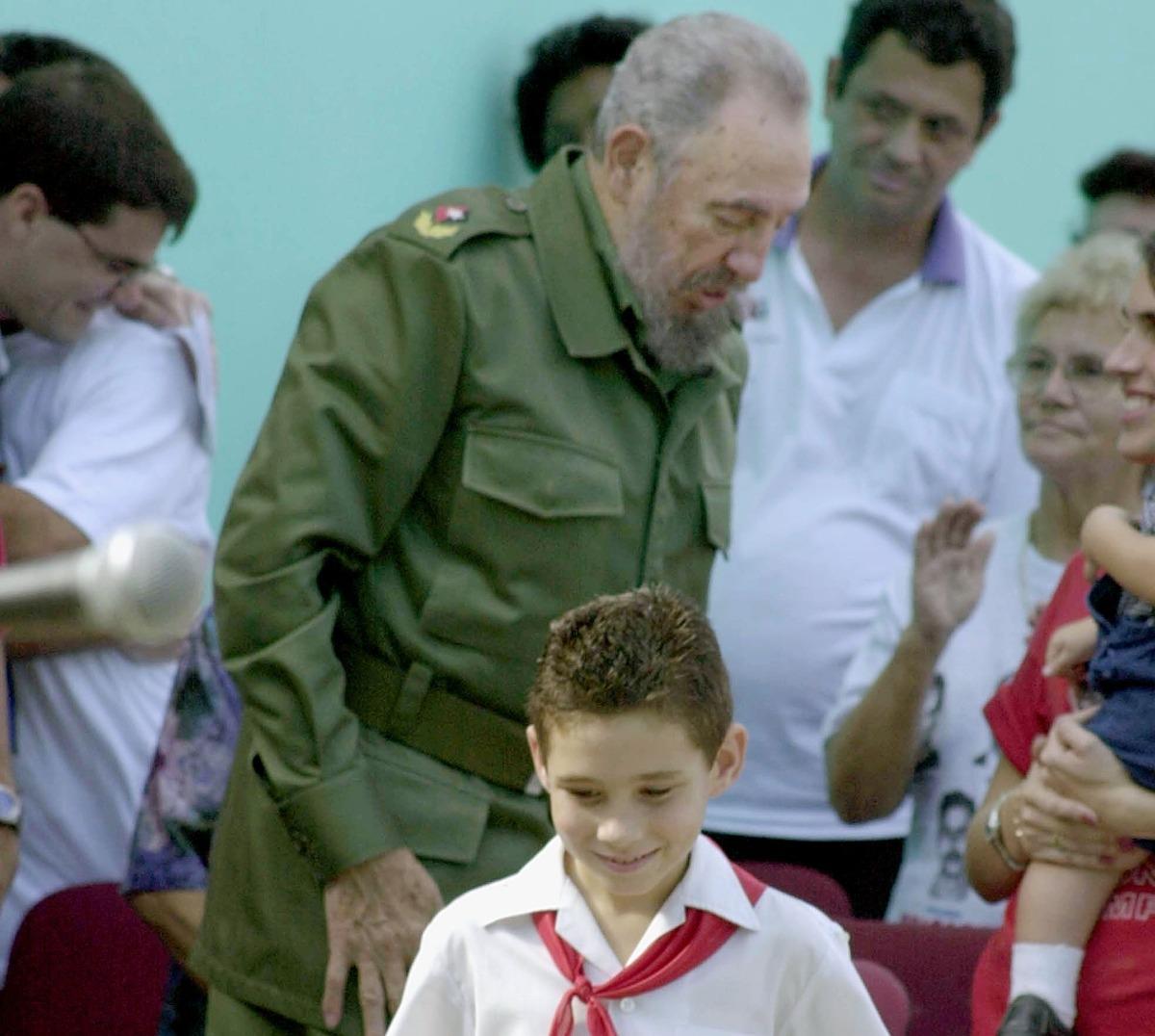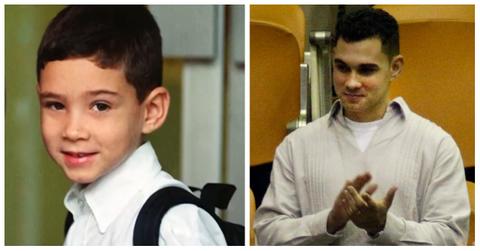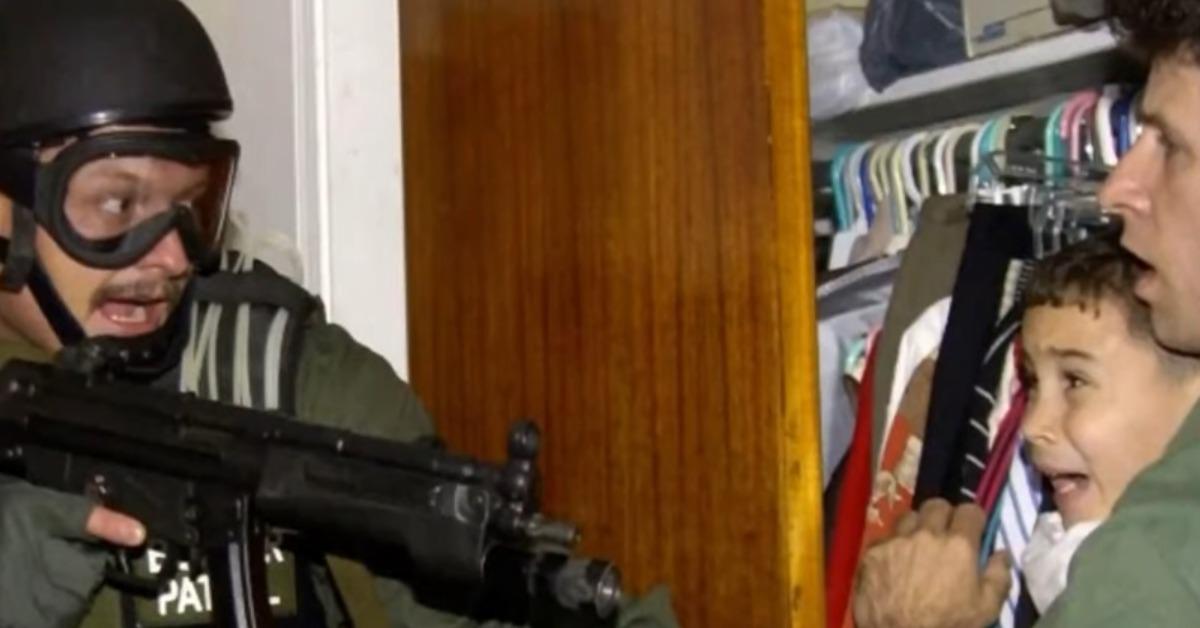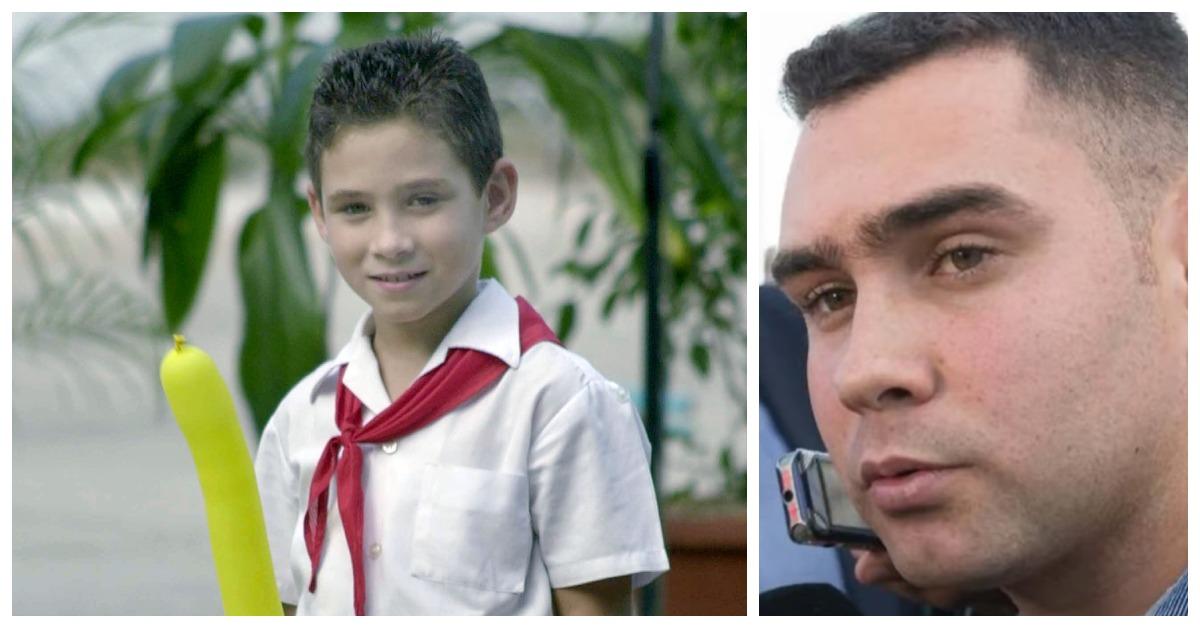Where Is Elián Gonzalez Now? Famous Child Castaway Now Lives in Cuba
Elián Gonzalez landed in the U.S. on Thanksgiving in 1999 and sparked an international incident. Now, he's a politician.
Published Nov. 26 2024, 1:51 p.m. ET
On Thanksgiving in 1999, a wide-eyed little boy was discovered floating on an inner tube in the Atlantic Ocean, just off the shores of Dania Beach which lies between Fort Lauderdale and Miami, Fla. His name: Elián Gonzalez.
That little boy sparked an international incident that captivated the world and brought to light the diplomatic powder keg that silently existed between the United States and Cuba. Since then, life has changed enormously for little Elián, who is around 31 years old in 2024. Here's what we know about what he's up to now.
Here's where Elián Gonzalez is now.
For many refugee Cuban exiles living in the United States, Elián was more than a castaway boy needing a home: He was a symbol. Former University of Miami professor Andy Gomez told CBS News Miami, "Elian became a symbol for the Cuban American community's fight against Fidel Castro." And seeing him return to Cuba, trotted out at the side of Fidel Castro for state events, was painful for Cuban Americans who left because of Fidel's policies.
But now, that little boy who was the heart of so much turmoil is hoping to improve ailing relations between the two countries. Now in his early 30s, Elián is a father of a 2-year-old daughter and works for a state company that facilitates tourism to Cuba now that Americans can travel to the island nation. In April 2023, he was elected to and sworn in as a member of Cuba’s National Assembly of People’s Power, representing Cárdenas.
As both a politician and tourism facilitator, Elián is positioned to help smooth over relations between Cuba and the United States. But Cuban Americans who fled the former President's regime may not find it so easy to forget the painful past and how they lost the boy they looked to for hope. Elián now blames American sanctions for the struggling state of Cuba, not holding the former President accountable for the country's woes.
Although Cuba is known for harshly dealing with those critical of the state, Elián defends people's right to protest even as he points to sanctions as the cause of the country's ills rather than restrictive policies governing trade and everyday life in Cuba. Over the past several decades, Elián has lived a relatively low-profile life. Although he appeared beside Fidel several times, his father kept him away from most media interviews.
Now, he's stepping into the spotlight. Per PBS, Elián has these words for those who have fled Cuba: “I respect all those who made the decision to leave Cuba, I respect those who do so today, just as I do my mom. My message will always be that (those who leave) do all they can to ensure that Cuba has a status (without sanctions) equal to any country in the world.”
Elián once captivated the world.
On Nov. 25, 1999, a 5-year-old boy was found off the coast of Florida. Fishermen rescued him from the waters, and he was taken to a hospital. He, his mother, and 10 other people boarded a boat as part of a desperate attempt to flee Cuba under the leadership of then-President Fidel Castro. Tragically, Elián's mother and the other 10 refugees died on the journey, leaving little Elián alone.

Cuban President Fidel Castro and Elián Gonzalez celebrate the boy's 9th birthday in 2002.
The next day, the hospital released Elián to the custody of his uncle, Lazaro Gonzalez, and other relatives who lived in the nearby city of Miami. The same day, Cuban government officials sent a note to the U.S. mission in Havana asking that the little boy be returned to his father, Juan Miguel Gonzalez, who still lived in Cuba. A few days later, he filed a complaint with the UN to draw attention to his request for custody.
What followed was a high-stakes and high-profile, back-and-forth battle between Florida courts, relatives of Elián in Miami, his father, and even eventually Fidel Castro himself, who launched a public campaign to put pressure on the U.S. to return the child. six months later, Juan arrived in Miami to take custody of his son after the government agreed to turn the boy over.
On April 22, 2000, U.S. agents launched an early morning raid of the compound where Elián was staying, leading to a horrifying picture made famous showing Elián at the barrel of a soldier's gun. A few more last-minute efforts were made by relatives to keep Elián in the U.S., but he and his father returned to Cuba on June 28, 2000, to much celebration in their home country. Although Elián's fate is still controversial to many, he seems to be thriving in his home country.


